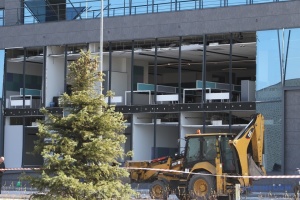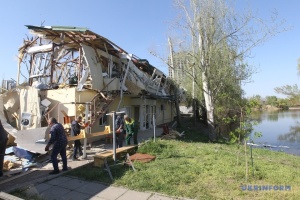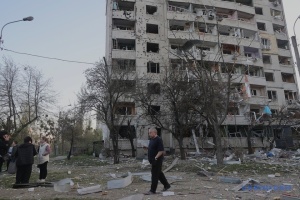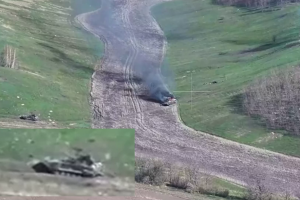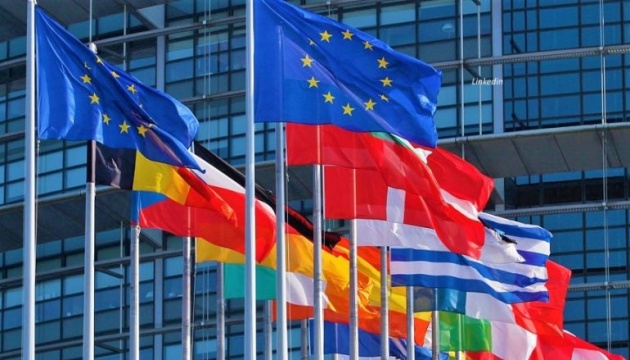
EU agrees to urgently intensify provision of aid to Ukraine – resolution
The full text of the document is published on the European Council’s website, Ukrinform reports.
“The European Council reiterates its resolute condemnation of Russia’s war of aggression against Ukraine. It reaffirms the Union’s full support for Ukraine’s independence, sovereignty and territorial integrity within its internationally recognised borders, as well as for Ukraine’s inherent right of self-defence against the Russian aggression,” the document says.
In particular, the EU leaders said they are committed to providing political and military support to Ukraine, notably through the European Peace Facility and the EU Military Assistance Mission in support of Ukraine, and by stepping up the bilateral provision of support, in particular air defence capacities and demining assistance.
“Russia’s ongoing campaign of systematic missile strikes against Ukrainian civilians, civilian targets, energy infrastructure and other utilities, to inflict even more suffering on the Ukrainian people, is a crime for which there can be no impunity. It must stop. The European Council calls on all international partners to make similar calls and exert their influence to this end. The European Council also calls on Russia to immediately cease actions endangering the safety and security of civilian nuclear facilities and underlines the European Union’s full support for the work of the International Atomic Energy Agency,” the document says.
The EU leaders agreed to urgently intensify the provision of humanitarian and civil protection assistance to Ukraine, including in kind, and assist in the restoration of Ukraine’s critical infrastructure to help Ukraine get through the winter. In this regard, the European Council invited the European Investment Bank, in close cooperation with the Commission and International Financial Institutions, to step up its support for Ukraine’s most urgent infrastructure needs.
In addition, the European Council invited the Commission to intensify coordination with European industry and international partners to provide a sustainable supply of priority equipment to Ukraine such as mobile heating stations, power generators, power transformers, and high-voltage and lighting equipment. In this context, the European Council welcomes the outcome of the Paris conference on Ukraine’s resilience and reconstruction on 13 December 2022.
According to the document, the European Union will also maintain its support for displaced persons, both within and outside Ukraine. The European Council invites the Member States to intensify contingency planning, with the support of the Commission.
“The European Union remains committed to providing, along with partners, financial relief to Ukraine, and supporting its resilience and long-term reconstruction. In that context, the European Union has agreed to provide EUR 18 billion of assistance to Ukraine in 2023. The European Council welcomes the G7 agreement to establish a multi-agency Donor Coordination Platform,” the document says.
The European Council also welcomes and encourages further efforts to ensure full accountability for war crimes and the other most serious crimes in connection with Russia’s war of aggression against Ukraine, including ways to secure accountability for the crime of aggression. It welcomes the reinforcement of EU restrictive measures against Russia, including through the EU’s ninth package of restrictive measures and the international oil price cap, while ensuring a global level playing field.
“The European Council also took stock of the options to use frozen assets to support Ukraine’s reconstruction and for the purposes of reparation. It invites the Commission, the High Representative and the Council to take work forward, in accordance with EU and international law, stressing that the prosecution of the crime of aggression is of concern to the international community as a whole,” the document says.
As earlier reported, a meeting of the European Council was held in Brussels on Thursday, December 15. The EU leaders discussed the most important issues of European policy, including the Russian aggressive war against Ukraine and its consequences for Europe and the whole world, ways to respond to the price crisis in the energy sector and ensuring stability and competitiveness of the EU Single Market.
iy

